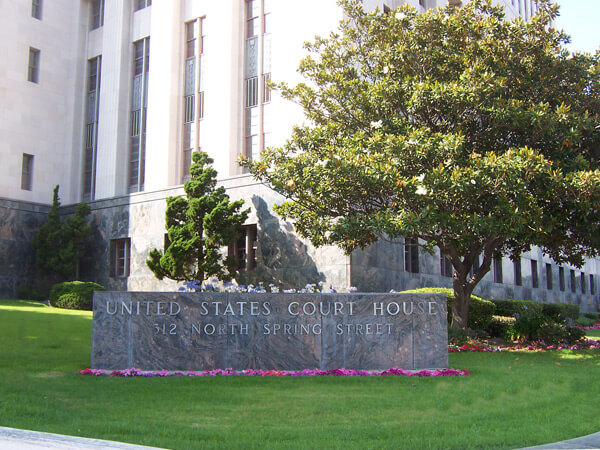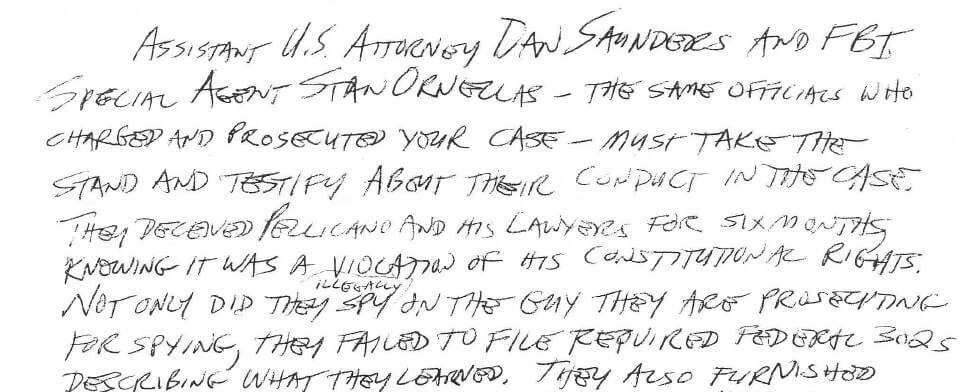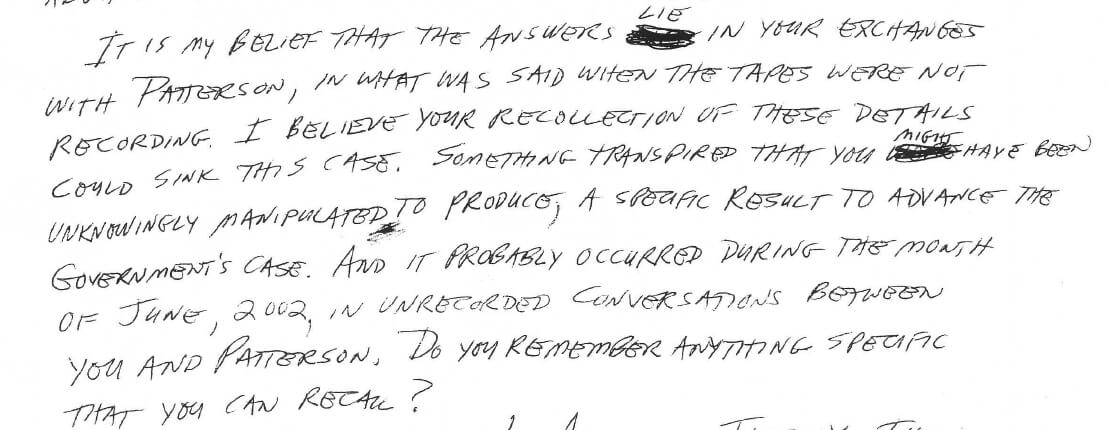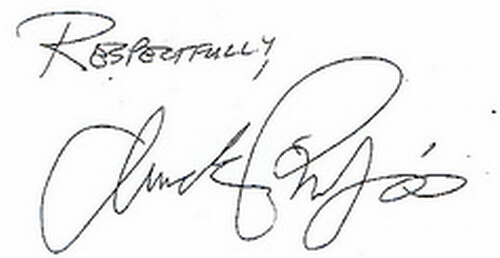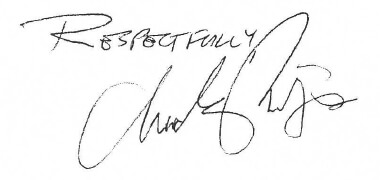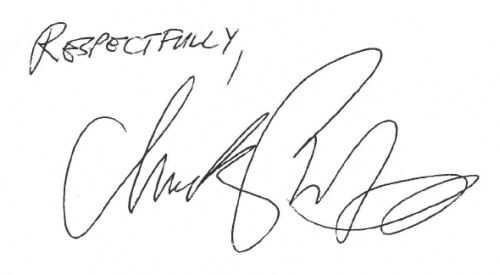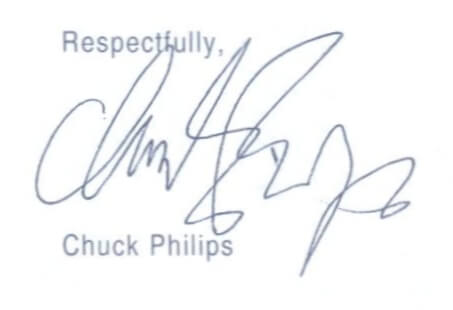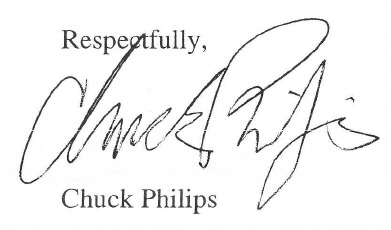Anita Busch Calls for Investigation of Chuck Philips’s Pellicano Reporting
Anita Busch, a former L.A. Times reporter who was allegedly threatened by Anthony Pellicano — has released the following statement regarding Pellicano’s conviction:
I’d like to thank the judge and jury for their patience and wisdom on this case as well as the honest people in law enforcement who stopped others from being relentlessly attacked and terrorized. For that, I am eternally grateful.
The full story of Pellicano’s reach has yet to be told. To Pellicano and his wealthy clients, ‘winning’ meant completely obliterating someone’s life and livelihood. They saw the media as just another weapon in their arsenal and used and abused it to go after anyone in their crosshairs. For example, they used their PR connection to plant items in the New York Post’s Page Six to slam victims like Bo Zenga and Garry Shandling. And when their targets became FBI agent Stan Ornellas and U.S. attorney Dan Saunders, they tried to smear and discredit these decent men in the pages of the L.A. Times. The Pellicano case coverage in the L.A. Times as reported by Chuck Philips (who told the NY Times that Pellicano was his longtime news source) should be examined. It’s a case study of how Pellicano worked his media relationships to try to destroy his adversaries.
I called Ms. Busch this evening and she elaborated on the Chuck Philips angle. She told me that when she received a dead fish, a rose, and a note that said “Stop” on her windshield — a threat for which Pellicano was later indicted — a lawyer at the L.A. Times suggested that the paper investigate the matter internally, with the help of . . . Anthony Pellicano. It turned out that the lawyer is married to an L.A. Times editor who, in June 2003, had a Christmas gift from Pellicano on his desk — according to an L.A. Times reporter who told Busch about it.
What’s more, she said, Chuck Philips, who has written articles attacking the government’s case against Pellicano (and who attended Pellicano’s wedding in an apparently friendly capacity) was present for the verdict today . . . seemingly without a pen or notebook.
Part of this story has been reported previously in the New York Times:
A day after [Busch] found the package, records show, a man with a criminal record called her out of the blue with information about the threat. A private investigator had hired someone else to blow up her car, he told her. As Ms. Busch and her colleagues met with F.B.I. and police officials to consider their next moves, the newspaper’s lawyer, Karlene Goller, spoke up with a suggestion.
Maybe Anthony Pellicano would know something about this, Ms. Goller said, according to two Times employees.
Ms. Busch insists that Ms. Goller talked of “bringing aboard” Mr. Pellicano.
Ms. Goller declined to comment, citing lawyer-client confidentiality. But Paul Lieberman, a reporter who heard the suggestion, said he saw nothing untoward in it. “He was someone that knew” the criminal element,” Mr. Lieberman said.
A reporter who had long experience with Mr. Pellicano as a news source, Chuck Philips, said he had tried to reach him at Ms. Goller’s urging and did not get through. But, he added, it was “preposterous” to think Ms. Goller would have proposed hiring him.
At this time, Mr. Pellicano was not suspected in the threat against Ms. Busch. But wrongly or rightly, the discussions left her convinced that the paper was too cozy with him.
Busch told me that when Goller made the suggestion to bring Pellicano aboard, Busch flinched. She was disturbed by the idea that the paper was considering “bringing aboard” a private investigator to help investigate the threat, when Busch had been told that a private investigator had hired someone to blow up Busch’s car. According to Busch, Goller said, in an apparent attempt to reassure Busch, “He [Pellicano] has worked with us in the past and he’s done really well by us.” Busch said then-editor John Carroll decided that the paper was not going to call in a private investigator and instructed Goller to call the LAPD and FBI. “He made the right decision,” said Busch.
When evidence later emerged connecting Pellicano to the threat, Busch told me, she became convinced that Pellicano had relationships inside the newspaper that were at odds with her position. “I came to realize that there was something amiss inside the L.A. Times with Anthony Pellicano, and it became prudent for me to find out what the hell was going on inside my newspaper.” So Busch decided to search L.A. Times archives to see who had written about Pellicano before, to learn who had the prior relationship with Pellicano. She noticed two names: Jim Newton and Chuck Philips. (Take a look at a similar search I did here.)
L.A. Times editor Jim Newton is married to Karlene Goller, the lawyer who had initially suggested bringing Pellicano on board to investigate the threat against Busch. Busch added a fascinating detail. In June 2003, Busch said, a metro reporter who is still working at the paper came to her and said that he thought there was a conflict in the room regarding Jim Newton and Pellicano stories. (Busch told me who the reporter is, but asked me not to name him because he still works at The Times.) Jim Newton had toured Pellicano’s office years ago, the reporter told Busch. “It’s getting really strange around here,” he told Busch. “There’s a feeling that [Newton] will do anything to protect his wife. Go look at [Newton’s] desk. There’s an old Christmas gift from Pellicano on his desk.” When Busch asked what kind of gift, the metro reporter told her it was a baseball from Pellicano. (A New Yorker story from July 2006 reported that Pellicano had once sent out baseball paperweights as Christmas gifts.)
“What’s happening?” Busch remembers thinking when the evidence emerged of Pellicano’s alleged ties to the threat against her. She recounted her distress at the feeling that “the man who threatened [me] has relationships at this newspaper.” She said that if anybody goes back and looks at the L.A. Times reporting on Pellicano’s case, they will notice a pro-Pellicano theme cropping up in story after story. “No other newspaper in the country questioned the veracity of the FBI or the U.S. Attorney’s Office in this case,” she said, but the L.A. Times did in several articles, often by Chuck Philips.
Regular readers of this blog will remember that Chuck Philips apparently has had a personal relationship of sorts with Anthony Pellicano. In June 2007 I wrote a post about a Chuck Philips article touting claims by the Pellicano defense team that “an FBI agent concealed information and then lied about it to convince a judge to let him search the Hollywood private eye’s office.” I cited to a Nikki Finke post from March of that year which noted that Philips had attended Pellicano’s wedding and was (according to Finke) “the ONLY journalist there not taking notes.” Finke also said: “Pellicano said hello only to two journalists there, Frank Swertlow and Chuck Phillips. In fact, Phillips and Pellicano saluted and smiled to each other.” Yet here was Philips, who seemed to have a personal relationship with Pellicano, reporting on his case and his arguments that the FBI had lied to the court. (Shades of Philips’s articles about Suge Knight.)
Busch told me an interesting fact that reminded me of the wedding story. Today, she said, Chuck Philips was present for Pellicano’s verdict. “I didn’t see him with a notebook or a pen,” Busch told me. She noted that Carla Hall was there to cover the verdict for the newspaper, and indeed, the story on the L.A. Times site right now about the verdicts is by Carla Hall and Tami Abdollah.
“The newspaper needs to look at every story that Chuck Philips has written about the Pellicano case,” Busch told me. “FBI agent Stan Ornellas, who had investigated Pellicano, was targeted in the pages of the L.A. Times, courtesy of Chuck Philips. And [Philips] also wrote a story directly questioning the ethics of [Assistant] U.S. Attorney Dan Saunders, who was responsible for prosecuting Pellicano.
“The L.A. Times needs to agree to an independent investigation of the newspaper’s coverage of any story involving Pellicano, and they should begin with the Pellicano case coverage. For the sake of journalism, I would openly cooperate with any independent investigation. I really hope they do the right thing.”
So do I.
UPDATE: I have forwarded the post to Jim Newton and Chuck Philips and invited them to respond. I think fairness dictates that they should have the chance to do so. I will gladly publish any response I receive (within reason).
UPDATE x2: Newton responds here.
UPDATE x3 12-15-08: Pellicano was sentenced today to 15 years in prison. Busch’s sentencing statement is set forth in its entirety here.





